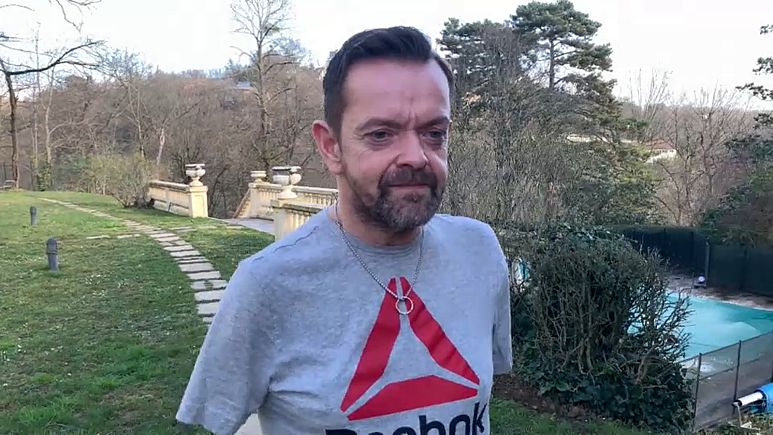Long wait for transplant surgery brings limb donation into spotlight
by Oliver Whitfield Miociceuronews_icons_loading

A double amputee is urging people to discuss their wishes about donating their bodies to medical science after they die.
Felix Gretarsson lost both of his arms in an industrial accident in 1998 when he mistakenly touched high voltage power cables, which, as he puts it, “burnt” his limbs off.
The former electrician from Iceland has been waiting four years for a double arm transplant.
Suitable donors have been found but because their family members never discussed the subject of limb donation, they often refuse permission for the life-changing surgery.
Limb donation isn’t classed the same as organ donation which some EU countries have made mandatory unless the donor opts out.
“Maybe the donor himself wouldn’t have minded but the family doesn’t know. So turn to your husband or wife and tell them how you feel about this,” Gretarsson told Euronews.
“Like finding a needle in a haystack”
Searching for a suitable donor is no easy task.
Body parts can only be taken from brain dead patients of a similar age to the recipient and who have the same gender, blood type and skin colour.
The still experimental surgery also has to be completed quickly so that the limbs don’t deteriorate.
This means the patient has to remain close to the hospital and always on standby in case a match is found.
“It’s very difficult for the family where there is a brain dead donor to accept that you have the two arms because it is a mutilation of the body," transplant specialist Dr Emanuel Morelon told Euronews.
"So for Felix for instance, he is on the waiting list for four years and we had maybe one donor per year and each time we have a refusal from the family."
Gretarsson equates it to finding a needle in a haystack.
Risk of Rejection
Gretarsson moved to Lyon, France because doctors in the city pioneered double hand transplant surgery 20 years ago.
There have been just a few dozen limb transplant surgeries since then. The operation is still experimental and not a permanent solution.
Some patients struggle psychologically to come to terms with the fact that they have someone else’s body parts attached to them and ask for the surgery to be reversed.
Despite patients taking daily immunosuppression drugs for the rest of their lives, the human body could also ultimately reject the donated limb. Doctors would then have to remove the limb
“After 10 to 15 to 20 years, we don't know, (there could be) rejection and the patient will be back to his status of double amputee,” said transplant surgeon Dr Aram Gazarian at the Clinique du Parc. He thinks patients should be aware of this.
"In our team, two patients have already lost their arms, two out of a total of seven," Dr Morelon said.
Where there's a will there's a way
Gretarsson says he wants people to discuss the topic and make their position on limb and organ donation known before they die. He says writing their wishes in a will or official document could increase the number of donors
Indeed, he accepts the risks and just wants to live a more independent life and get rid of his prosthetic arms: “The problem with prosthesis is you put them on, you sweat in them, they smell like feet, it’s disgusting and it’s always hot,” he said.
“It is like I’ve been in a bubble for 22 years. I never touch anybody except my wife. This operation is not going to save my life, I’m not dying but the quality of my life could drastically change," he added.
"I haven’t cuddled my daughters since one was three months old and the other was four years old.”
Video editor • Lauren Chadwick